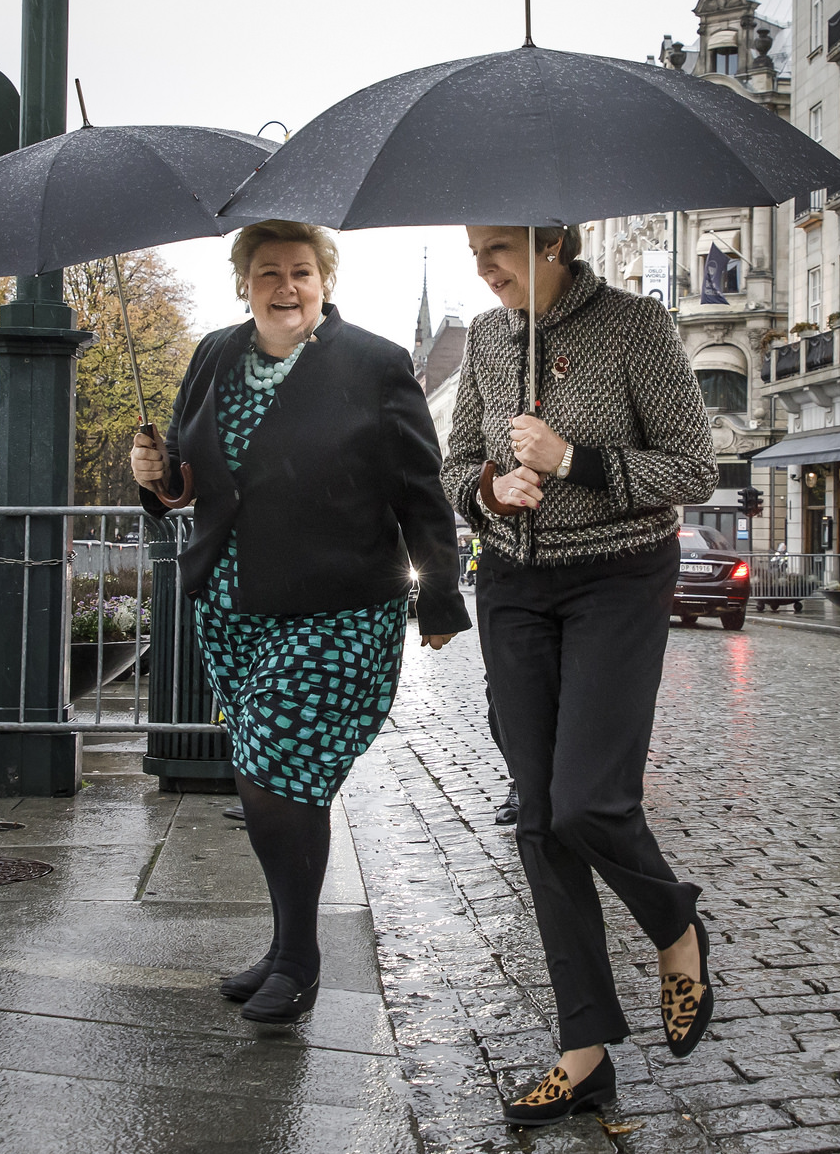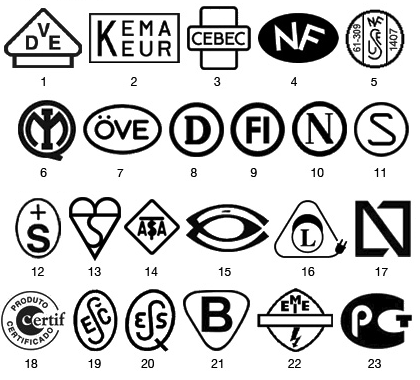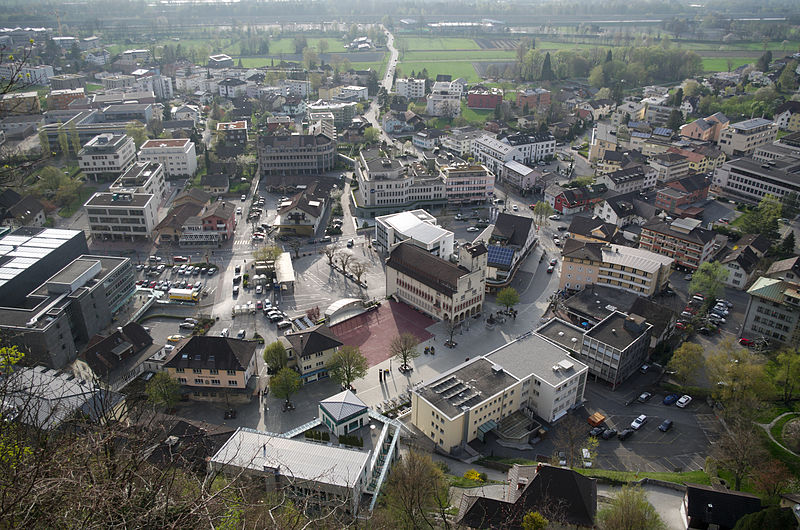What is the Norway Plus option?
The EEA agreement
What the EEA does not cover
What is Norway Plus?
Is there an emergency brake on immigration?
Do you still have to pay?
Why is Norway less enthusiastic?
The EU supports Norway Plus

30 october 2018: British prime minister Theresa May outside parliament in Oslo with Norway's prime minister Erna Solberg (Photo: Thomas Haugersveen/Statsministerens kontor).
The EEA agreement
The European Economic Area (EEA) Agreement brings together the 28 EU member states and the three EFTA states Norway, Iceland and Liechtenstein in an internal market governed by the same basic rules. It guarantees the EU Single Market's four freedoms, as well as non-discrimination and equal rules of competition throughout the EEA area.
The EEA Agreement also covers cooperation in other important areas such as research and development, education, social policy, the environment, consumer protection, tourism and culture. It ensures the three EEA Efta states participation in a number of EU programmes and agencies and entitles Norway, Iceland and Liechtenstein to second national experts to the Commission.
The text of the EEA agreement.
"Everything" on EEA on the EFTA website.

Prior to 1990, all electrical appliances had to be approved in each separate EEA country. Now, the countries recognize each other's certification, removing a major barrier to trade.
What the EEA Agreement does not cover
The EEA Agreement does not cover the following EU policies:
- Common Agriculture and Fisheries Policies (although the Agreement contains provisions on various aspects of trade in agricultural and fish products)
- Customs Union
- Common Trade Policy
- Common Foreign and Security Policy
- Justice and Home Affairs (even though the Efta countries are part of the Schengen area)
- Economic and Monetary Union (EMU)
Although defence and security is not encompassed by the EEA agreement, Norway participates in the Nordic Battle Group, one of the 18 EU battlegroups. (Norway is also one of the founding members of NATO).
What is Norway Plus?
The EEA Agreement gives Norway, Iceland and Liechtenstein full access to the EU market on the same term as full members. But Norway does not participate in the Customs Union. The Norway Plus concept foresees that The United Kingdom should enter into EFTA, but retain its current membership in EU's customs union.
As there are no tariffs or customs duties for trade between the EU and EFTA, a customs union might not sound as a big deal. But it is in fact a major barrier to trade, as the two groups don't cooperate on VAT. If you buy something in Denmark and bring it to Norway, you have to pay VAT when crossing the border. In some instances, you will actually not get the VAT already paid in Denmark refunded. The product might be charged with VAT twice, which it won't inside a customs union.
EFTA has trade agreements with 39 countries outside the EU. These agreements would encompass Britain too, should it rejoin.
Labour's Stephen Kinnock on Norway Plus

The center of Vaduz, Lichtenstein's capital. (Photo: Clément Bucco-Lechat).
Is there an emergency brake on immigration?
Through the EEA Agreement, the "four freedoms" pertains to Norway. One of the four freedoms is the free movement of labour (which from tha first day has been understood as the free movement of people in general within the EEA).
There is no emergency brake on immigration, but there is a general emergancy break in Article 112, allowing members to suspend the whole or parts of the agreement " ..If serious economic, societal or environmental difficulties of a sectorial or regional nature liable to persist are arising".
Norway has 330.000 immigrants from EU countries, which amounts to approximately 6% of the population. The UK has approximately 3 million immigrants from the EU, making up a little less than 5% of the population.
In Norway, this European immigration has not been deemed excess or problematic. Using article 12 to curb immigration has not even been discussed.
The condition "..serious economic, societal or environmental difficulties.. liable to persist" is quite strict. Immigration from EU countries continuing at more or less the same rate as before, could hardly be evoked as such a circumstance.
On free movement and article 112 by Zuzanna Bobowiec, Dickson Poon School of Law, King’s College London.

Polish pub in Reading, England (Photo: Graham Horn).
Do you still have to pay?
Officially, access to the common market is free. But Norway pays approximately 1 billion euros per year to EFTA. Roughly half of this in order to participate in certain EU programs. The rest is grants, in principle volontary, but not quite..
The Ministry of Foreign Affairs on Norway's contributions.

With support from Norway, the State Police of Latvia works to ensure adequate standards in short-term detention centres and improve the competencies of police officers in accordance with international human rights standards. (Photo: Christophe Vander Eecken). (Evaluation report).
Why is Norway less enthusiastic?
The EFTA countries have no say in the making of EU laws, but could refrain from adopting them. In this case, the EEA Agreemen gives the EU the right to reciprocal action, more or less of its choice.
Norway cannot risk this, so it silently integrates hundreds of new EU rules into Norwegian law every year, with very little public discussion (but for rare exeptions). Britain, one of the world's biggest economies, with 13 times Norway's population, would be expected to be much more noisy, not the least because there is a large group of vocal populists in the country. This rocking of the EFTA boat could create percussions in Norway. It could activate Norway's own populists as well as the persistent anti-EU-membership grass root, some of whom have always regarded the EEA agreement with sceptisism.
There are certain exeptions to the four freedoms in the EEA agreement, particulary in the areas of agriculture and fisheries. In agriculture, Norway is one of the most protectionist countries on earth. This would not suit an export orientated farming sector as the British. But there are no bespoke deals within EFTA. All countries have signed the exact same agreement.
This being said, Norway would probably not actively and openly seek to undermine an eventual application to EFTA from the UK. The current lukewarmness might be tactical, as Solberg seeks to help her conservative compatriot May to get the current proposal through parliament.
Norwegian Prime minister Erna Solberg on Britain rejoining EFTA.
Heidi Lunde, member of the economic affairs committee in the Norwegian parliament on Norway Plus.
Norwegian fishing vessel M/T Teigenes catching herring in 2016 with three curious killer whales looking at.
The EU supports Norway Plus
The EU's chief Brexit negotiator Michel Barnier has himself proposed a Norway Plus deal. It would at least probably make his job easier, as all agreements made between EFTA and EU had to be accepted fins and tails by the UK. Any adustment had to be first accepted by Iceland, Lichtenstein and Norway, before being discussed with the EU, which would probably react with a yawn.
Interview with EU's chief Brexit negotiator Michel Barnier from 22 May 2018.